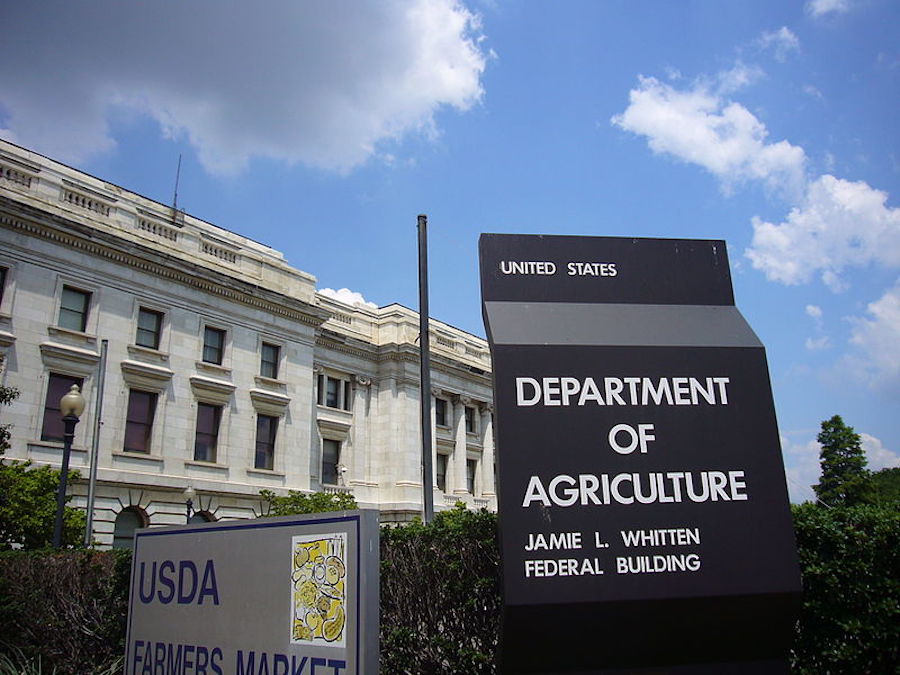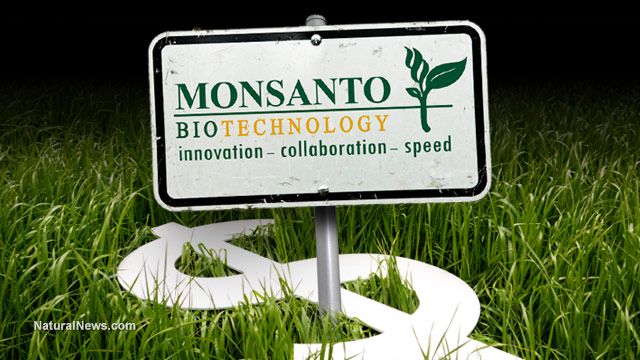USDA’s refusal to regulate gene-edited crops latest example of collusion with GMO industry
03/21/2019 / By Isabelle Z.

The U.S. Department of Agriculture (USDA)’s stated purpose is helping farmers and ensuring the safety of the U.S. public when it comes to food, but lately they seem a lot more interested in helping the GMO industry than protecting Americans’ health.
To date, the government agency has given non-regulated status to at least 20 plants that have been genetically engineered using genome-editing techniques. Moreover, according to Sustainable Pulse, not one of the applications that were USDA-registered were referred for additional assessment or more details.
This lack of regulatory attention comes despite the significant differences that can be found in the traits and production methods of these plants compared to those that come via conventional breeding, according to new research from Testbiotech. Their report shows that the pattern of genetic changes that causes these differences differs dramatically from those in conventional breeding.
Genetic engineering uses technical interventions that bypass natural biological mechanisms, which means extreme caution should be used before making these foods available to the public. No one knows what the long-term effects of consuming them could be, so it doesn’t make sense to release them on the market completely unregulated.
Some of the plant species in question include potatoes, maize (corn), tobacco, tomatoes, wheat, soybeans, rice, and alfalfa. The traits that these plants are intended to possess is not always easy to determine from the registered documents; in many cases, it’s considered “confidential business information.” However, the technique has been used in the past for foods like apples that don’t brown and tomatoes that take longer to spoil.
While not all of these products will make it to the market, it’s reasonable to imagine that many of them will. There’s also the possibility of them crossing or combining with other plants and making their way through the entire food supply, becoming indistinguishable from their more natural counterparts.
Why is the USDA turning a blind eye to genetic engineering?
In the European Union (EU), genetically engineered organisms are required to undergo a risk assessment, but there is no such legal requirement in the U.S. In fact, the USDA’s decision not to regulate the CRISPR gene editing technique has helped a lot of businesses in what has been termed a “GMO gold rush”. It’s a lot faster and cheaper for them to bring CRISPR-edited products to market than traditional genetically modified crops, with some estimates showing that developing and marketing these gene-edited foods is as much as 90 percent cheaper than traditional GM crops. Quite simply, they’re chasing profits without regard for public safety, and the USDA is helping them get away with it.
Although we don’t know a lot about the long-term effects of this particular type of interference with nature, we do know that it can cause unintended mutations in genomes that are easy to miss. A study carried out by the Columbia University Medical Center warned the scientific community about this potential CRISPR-Cas9 risk recently.
The USDA willingly turning a blind eye to these dangers might be upsetting, but it’s not terribly surprising. In 2017, the USDA came under fire when it declined to test food samples for glyphosate, reversing an earlier decision. The toxic herbicide, which has been linked to cancer and other health and environmental problems, is incredibly profitable for manufacturers like Monsanto, and many believe the decision was a sign of collusion. Monsanto has already been known to collude with the Environmental Protection Agency (EPA) to manipulate science to make glyphosate look less risky, and it’s not a stretch to imagine a similar arrangement existing between the USDA and the GMO industry.
The USDA’s lack of oversight here is appalling. How could altering DNA not bring with it any health risks? Why are people essentially – and unbeknownst to them – going to be serving as the guinea pigs here? People don’t want glyphosate in their food, they don’t want to eat genetically modified foods, and they’re not going to want to consume gene-edited crops, either. Unfortunately, thanks to the USDA, consumers may not even be able to tell the difference between gene-edited foods and conventional ones.
Sources for this article include:
TestBiotech.org [PDF]
Tagged Under: biotech, Collusion, corruption, CRISPR, CRISPR-Cas9, food crops, gene-edited crops, genetic engineering, GMO Industry, GMOs, harvest, regulators, USDA


















